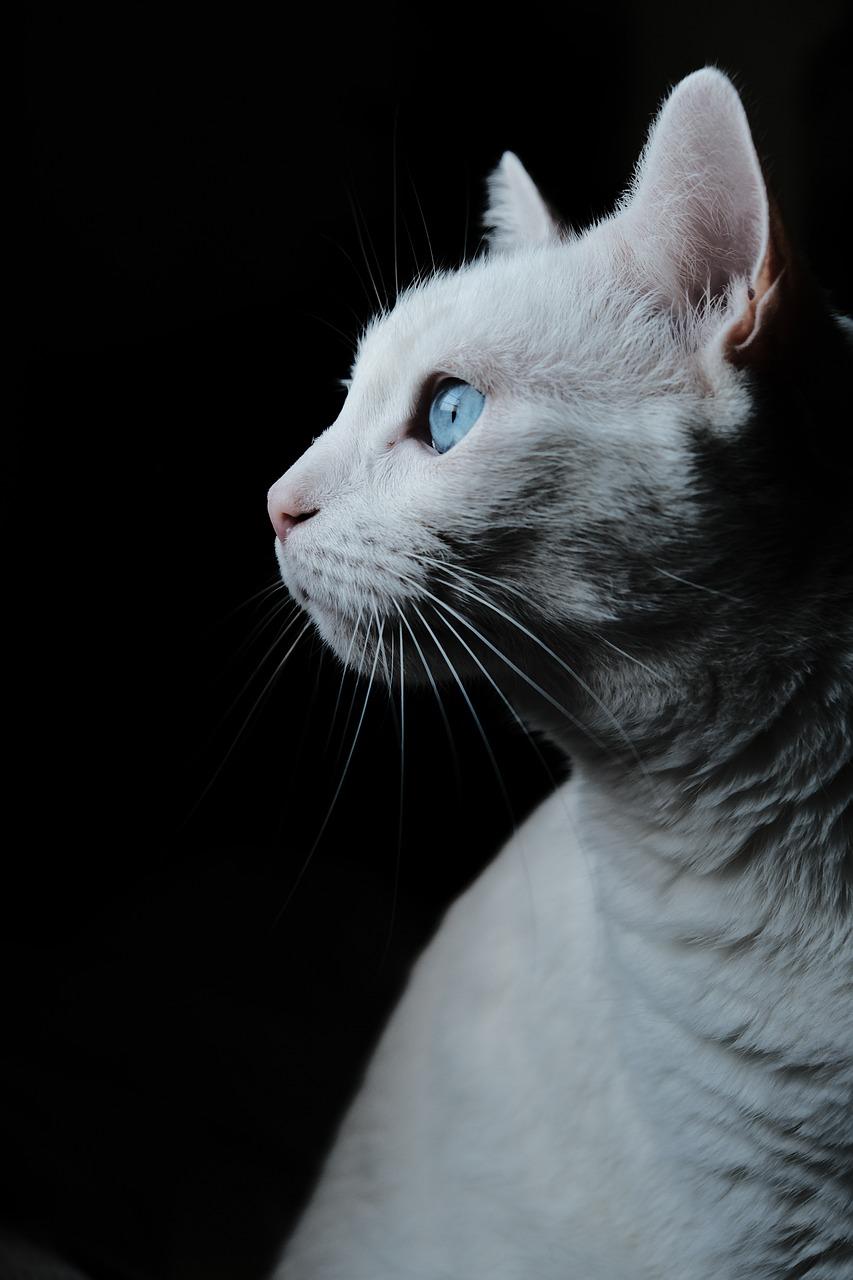Are Iris Plants Poisonous to Cats?

Does the thought of your adorable feline companion nibbling on some innocent-looking iris plants send shivers down your spine?
Are you terrified that these picturesque flowers might be harboring a dark secret, a toxic secret that could harm your precious ball of fur?
I feel ya, I really do. 😱
You're worried sick about the safety of your beloved cat.
But fear not, because today we're going to unravel this mystery together.
Let's find out the truth about iris toxicity and how to keep our furry friends out of harm's way.
Are you ready?
Let's dive in.
Are Irises Poisonous to Cats?
Yes, irises are poisonous to cats. All parts of the plant, including the stalk, flower, bulbs, and rhizomes, contain toxins. Ingesting any part can lead to vomiting, diarrhea, fatigue, and skin irritation. You should keep irises away from cats and create a cat-friendly environment with non-toxic plants.
Know what type of iris plants you have because their toxicity levels vary.
I'm telling you, if your cat gets ahold of an iris plant, things can go seriously wrong.
Every single part of the plant is toxic, including the stalk and flower.
The most concentrated toxins are found in the rhizomes and bulbs.
If your cat eats any part of the iris, it's asking for trouble. Be prepared for some serious tummy problems (the kind that lead to vomiting and diarrhea), extreme fatigue, and irritated skin (like they need another reason to scratch themselves silly).
Sure, the toxicity level is considered mild, but these plants can still cause irritation if eaten or touched, especially the bulb and rhizome.
Don't even touch them!

Seriously.
So, ensure those iris flowers and plants stay far away from your furry friends.
Set up a cat-friendly zone where there's no trace of iris whatsoever.
Better safe than sorry, right?
And hey, speaking of poisonous plants, why not fill your home with pet-friendly greenery, like catnip or spider plants?
And if you are wondering about the safety of snapdragons for your furry friend, rest assured that I have written a comprehensive guide to answer all your questions.
To ensure the well-being of your feline companion, check out my article on Are Snapdragons Poisonous to Cats.
Consider it a valuable resource in your quest to protect your beloved cat from any potential harm.
Don't wait, educate yourself and create a safe environment for your four-legged family member.
What Should You Do if Your Cat Eats Iris?
If your cat happens to eat an iris plant, you have to act quickly and take the necessary steps.
Here's what you should do:
- Stay calm, as panicking won't solve anything and could worsen the situation.
- Assess your cat's symptoms. Keep an eye out for vomiting, nausea, skin irritation, allergic reactions, slobbering, stomach distress, diarrhea, drooling, mouth ulcers, tissue irritation, dehydration, and lethargy.
- Contact your veterinarian immediately if your cat shows any of these symptoms or if it has ingested an iris plant.
- Provide your vet with exposure information. Explain when the ingestion occurred, how much was consumed, and any other relevant details.
- Follow your vet's instructions for washing the cat's mouth. This can be done by using a wet cloth or sponge to remove any remaining traces of the plant.
- Induce vomiting with hydrogen peroxide, following the dosage recommended by your veterinarian.
- Administer activated charcoal to help absorb any remaining toxins in the cat's digestive system.
- Monitor your cat for signs of aspiration pneumonia, which can develop after inducing vomiting. Watch for coughing, wheezing, or any difficulty breathing.
- Ensure your cat gets plenty of rest and fluids during the recovery phase.
- Schedule follow-up visits with your veterinarian to monitor your cat's progress.
It's always better to consult a professional rather than trying to treat your cat at home.
But wait, there's more to know about irises and their toxicity.
You won't believe how these beautiful flowers affect not only cats but also other household pets.
Let's dig deeper into the potential dangers and keep your furry friends safe...
What Is Iris?
The iris flower, from the Iridaceae family, blows your mind with its vibrant colors and mesmerizing petal patterns.
You must know that these gorgeous plants carry a dangerous secret:
Irisin, a venomous chemical found in every part of this seemingly innocent blossom, but primarily in the bulbs and rhizomes. So watch out!
Take extra care when handling these stunning beauties, for they can pack a poisonous punch.
But fear not, as long as you resist the temptation to munch on them, appreciating their splendor from a distance is perfectly safe.
Preventing Cat Consumption of Irises in Your Home or Garden
Avoid bringing irises into your home
If you want to keep your cat safe from consuming those poisonous irises, the best thing you can do is avoid bringing these plants into your home altogether.
Just leave them at the plant store where they belong.
But, if you must have irises in your life...
Keep irises in a cat-free zone
If you absolutely can't resist the allure of irises and decide to bring them home, make sure you place them in a room that is off-limits to your feline friend.
High shelves or closed rooms will do the trick to keep those curious cats away.
However, don't let your guard down!
Use tactics to deter cats from outdoor irises
Ah, the great outdoors.
So many opportunities for mischief, especially when it comes to cats and beautiful iris plants. If you want to keep your furry friend away from those vibrant flowers, try spraying them with water and citrus juice or apple cider vinegar.
And if that's not enough, take some extra precautions like using netting or barriers to keep your cat away from outdoor irises. It's all about keeping your pet safe while still enjoying the beauty of nature.

Prevention is key.
Create a cat-friendly distraction
Now, I know cats can be stubborn little creatures, so sometimes it's best to give them an alternative. Create a cat-friendly garden filled with goodies like catnip or cat grass.
These plants will divert their attention away from those toxic irises and keep them occupied.
And hey, a little positive reinforcement goes a long way. Train your cat to stay away from irises and reward them with treats and praise when they listen. Who says cats can't be trained?
In the end, it's better to err on the side of caution and remove irises from your home or make them inaccessible.
You don't want any poisoning mishaps, do you?
Explore further: If you're concerned about the safety of your furry friend, you might be wondering if hyacinths are poisonous to cats. Find out more about this in Are Hyacinths Poisonous to Cats, where I provide valuable information on keeping your cat safe.
Now, I know you're probably curious about what flowers are safe for your furry friends.
Well, let me share with you some dog-friendly and cat-friendly alternatives to irises that not only add beauty but also ensure the safety of your beloved pets.
Keep reading to find out which blooms will bring joy and peace of mind to your home...
Dog-Friendly and Pet-Friendly Alternatives to Iris

If you want to make sure your dog stays safe while still having a beautiful garden, here are some alternatives to iris that are safe for your canine buddy:
- Petunias: These vibrant flowers not only look beautiful, but they're also safe for your furry friend.
- Pansies: These delicate flowers come in many colors and are great for a pet-friendly garden.
- Snapdragons: These tall and elegant flowers will make your garden stunning and keep your dog happy and secure.
And if you're concerned about your cat getting into trouble with irises, here are some safe alternatives:
- Roses: Not only do roses smell amazing, but they're also harmless to cats.
- Sunflowers: These cheerful blooms will bring joy to both you and your feline companion.
- Marigolds: Bright and cheery, marigolds offer a safe option for your cat without causing any harm or discomfort.
- Daisies: Cats love these simple and pretty blooms, and they'll help create a lovely atmosphere in your garden.
By incorporating these delightful flowers into your garden, you can create a space that is both pet-friendly and enjoyable for you and your furry friends. 😺
Summing it up
Key Takeaways:
- Iris plants are toxic to cats due to the presence of pentacyclic terpenoids.
- All parts of the iris plant, including the stalk and bloom, can harm cats.
- Ingesting iris can cause gastrointestinal issues, skin irritation, and lethargy in cats.
- Prompt veterinary care is crucial if your cat exhibits symptoms of iris poisoning.
- Diagnosis involves a physical examination and providing exposure information.
- Treatment includes washing the mouth, inducing vomiting, and administering activated charcoal.
- Recovery from iris poisoning is generally favorable with proper care and rest.
- Prevent your cat from consuming irises by keeping them out of reach.
- Create a cat-friendly garden with safe plants like catnip or cat grass.
- Consider cat-friendly alternatives to irises such as roses, sunflowers, and daisies.
And that wraps up today's article.
If you wish to read more of my useful articles, I recommend you check out some of these: Are Impatiens Poisonous to Cats, Are Cosmos Poisonous to Cats, Is Polka Dot Plant Toxic to Cats, Are Stink Bugs Poisonous to Cats, and Are Asparagus Ferns Toxic to Cats
Talk soon,
-Sarah Davis